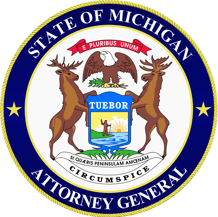
DO NOT FALL FOR IT!!!
LANSING – Michigan Attorney General Dana Nessel today warned Michiganders again to beware of scammers claiming to be from at least two local public health departments, calling residents to offer medication and at-home COVID-19 tests while asking for their Medicaid and Medicare numbers for billing purposes. Incoming calls are jamming local health departments’ phone lines, delaying important responses to COVID-19.
Reports so far have been focused on the Ionia County Health Department and now the Benzie Leelanau Public Health Department. The Attorney General’s office reissued a consumer alert making residents aware of the situation earlier today.
The Benzie Leelanau Public Health Department received multiple calls from residents in the 248 and 989 area codes asking about the calls. The department is in the 231 area code.

“Scammers are still on a quest to take advantage of this public health crisis to gain access to your private information. As we continue to work together to mitigate the spread of COVID-19, I want to remind all Michiganders to stay on high alert for scam calls, emails and text or direct messages on social media,” said Nessel. “Do not hesitate to contact our Consumer Protection Team to report a scam, file a complaint, or get additional information.”
Michigan's Attorney General Dana Nessel (shown Left)
To seem more official, scammers often use a process known as “spoofing” – when a call appears to be coming from a legitimate government phone number. The caller may also sound professional and be very persuasive.
Anyone who receives a phone call they suspect to be a scam should hang up the phone. No one should give out personal information to an unsolicited caller.
Residents should also be aware of online coronavirus scams selling bogus products and providing false information on COVID-19 tests and treatments. These attempts to obtain the personal information of consumers may include emails or online posts pitching unreliable products, advice, fake tests and cures to prevent the spread of COVID-19.
Those who wish to make a report about potential scams, price-gouging and any other violation of the Michigan Consumer Protection Act can do so with the Attorney General’s Consumer Protection team by filing a complaint online or by calling 877-765-8388.
Information around the COVID-19 outbreak is changing rapidly. The latest public health information is available online at a state website focused on the issue, and at the Centers for Disease Control and Prevention.
###













